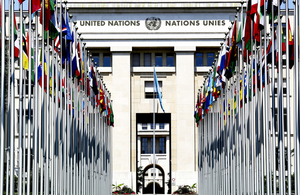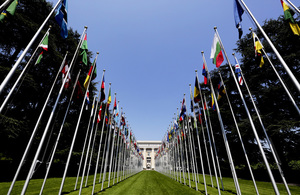More than £9m of UK Government funding will be awarded to 85 pioneering projects in Scotland to scale up and protect their innovations from the impact of the coronavirus pandemic, while helping to power up the UK’s green economic recovery.
Announced today (Wednesday 4 November) by the Business Secretary, Alok Sharma, the £9.26m funding is part of a wider £134 million UK Government package enabling 1,069 ground-breaking clean growth projects develop new technologies, secure and create new jobs, drive productivity and tackle climate change.
Businesses right across the UK, from Glasgow to Devon, are set to benefit from the investment.
These ideas could transform whole industries such as manufacturing, hospitality and the automotive sector by helping them respond to the unique challenges presented by the pandemic, while supporting risk takers to bring their novel ideas to market.
The 85 projects in Scotland benefiting from the package include:
Argyll-based Oceanium which is developing an advanced bio-refinery to help turn seaweed into food and compostable packaging products. Farming seaweed on a large scale will help create new jobs in the local area, and tackle plastic waste, supporting the UK’s aim to reach net zero carbon emissions by 2050.
Glasgow-based start-up Nuvven which is creating a fully mobile, digital and no-contact car rental service to benefit customers and owners. Using innovative features such as keyless entry, biometric customer verification and digitised damage assessments, car rental companies can offer lower prices through reducing their own costs.
Edinburgh-based Good-Loop which is helping small businesses promote themselves online, while using some of that advertising spend to help fund good causes around the world. Good-Loop target ads for local customers to connect local businesses and charities through smart software tools. Whenever users watch, swipe, or click on an ad, 50% of the revenue is donated to charity.
The Glasgow Wetland Carbon Capture Project (GWCCP) which will transform degraded, redundant or vacant land into thriving urban wetlands. While offering increased biodiversity and more green spaces, such wetlands create the world’s most effective carbon sinks (each hectare capturing up to 250 tonnes of carbon), and also transform contaminated soils and waters. And all achievable in time for Glasgow to demonstrate to the world its innovative approach to a greener, fairer, more sustainable recovery at COP26.
The Sustainable Innovation Fund, delivered through Innovate UK, is a cornerstone of the £1.25 billion investment package announced by the Chancellor in April to help ambitious, innovative businesses survive and thrive during the current pandemic.
Business Secretary, Alok Sharma, said:
The UK’s response to coronavirus has demonstrated the very best of British ingenuity, and it is this resourcefulness that will help us navigate our way through this pandemic.
Today’s investment will ensure that our innovators and risk-takers can continue to scale up their ideas, helping the UK to build back better and ensure we meet our clear commitments on tackling climate change.
UK Government Minister for Scotland, David Duguid, said:
Innovation is an essential part of dealing with climate change and the UK Government is committed to investing in trailblazing Scottish businesses as we build back better from the coronavirus pandemic.
Saving our environment will require making sustained changes and I urge others to join us in this year of climate action ahead of COP26 in Glasgow.
Innovate UK Executive Chair, Dr Ian Campbell, said:
Yet again we see the exciting range of business innovation taking place across the United Kingdom, despite these difficult times.
Every initiative we’ve supported here represents an important step forward in sustainable economic development, but also one step nearer dreams becoming reality for ambitious hard-working company owners and their staff.
The investment forms part of the government’s commitment to support the UK’s entrepreneurs and start-ups to scale up their innovations, set out in its ambitious R&D Roadmap in July this year.

